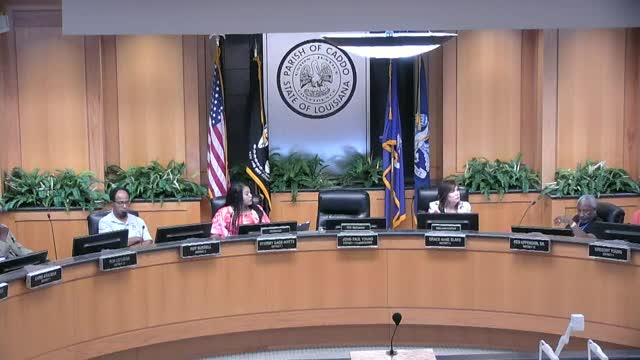Debate ignites over Ten Commandments in schools
July 04, 2024 | Caddo Parish, Louisiana

This article was created by AI summarizing key points discussed. AI makes mistakes, so for full details and context, please refer to the video of the full meeting. Please report any errors so we can fix them. Report an error »

During a recent government meeting, commissioners engaged in a heated discussion regarding the implications of a resolution to post the Ten Commandments in schools. The conversation highlighted deep divisions over the intersection of religion and governance, with various commissioners expressing their personal beliefs and historical perspectives.
One commissioner emphasized the importance of individual belief systems, arguing that while everyone has the right to their own faith, imposing religious beliefs on others, particularly children, is problematic. He referenced historical conflicts rooted in religious disputes and cautioned against invoking religion in a politically charged environment, suggesting it could exacerbate societal divisions.
Another commissioner, while personally supportive of the Ten Commandments, pointed out that they were originally given to the Jewish people and questioned the appropriateness of imposing them on a diverse population. He expressed concern over the politicization of religious texts and the potential for conflict within the community.
In contrast, some commissioners defended the resolution, asserting that the Ten Commandments serve as a moral guide and are historically significant to the foundation of the nation. They argued that the resolution is not about establishing a religion but rather recognizing the historical context in which the country was formed.
The discussion also touched on the role of parents in teaching moral values, with one commissioner arguing that the responsibility should not fall on schools to instill these teachings. He highlighted the need for a collective effort to address societal issues rather than relying solely on religious texts in educational settings.
As the meeting concluded, the commissioners remained divided on the issue, reflecting broader national debates about the role of religion in public life and the complexities of balancing personal beliefs with the principles of a pluralistic society. The resolution's passage appears likely, but the discussions underscored the ongoing tensions surrounding religious expression in government and education.
One commissioner emphasized the importance of individual belief systems, arguing that while everyone has the right to their own faith, imposing religious beliefs on others, particularly children, is problematic. He referenced historical conflicts rooted in religious disputes and cautioned against invoking religion in a politically charged environment, suggesting it could exacerbate societal divisions.
Another commissioner, while personally supportive of the Ten Commandments, pointed out that they were originally given to the Jewish people and questioned the appropriateness of imposing them on a diverse population. He expressed concern over the politicization of religious texts and the potential for conflict within the community.
In contrast, some commissioners defended the resolution, asserting that the Ten Commandments serve as a moral guide and are historically significant to the foundation of the nation. They argued that the resolution is not about establishing a religion but rather recognizing the historical context in which the country was formed.
The discussion also touched on the role of parents in teaching moral values, with one commissioner arguing that the responsibility should not fall on schools to instill these teachings. He highlighted the need for a collective effort to address societal issues rather than relying solely on religious texts in educational settings.
As the meeting concluded, the commissioners remained divided on the issue, reflecting broader national debates about the role of religion in public life and the complexities of balancing personal beliefs with the principles of a pluralistic society. The resolution's passage appears likely, but the discussions underscored the ongoing tensions surrounding religious expression in government and education.
View full meeting
This article is based on a recent meeting—watch the full video and explore the complete transcript for deeper insights into the discussion.
View full meeting
